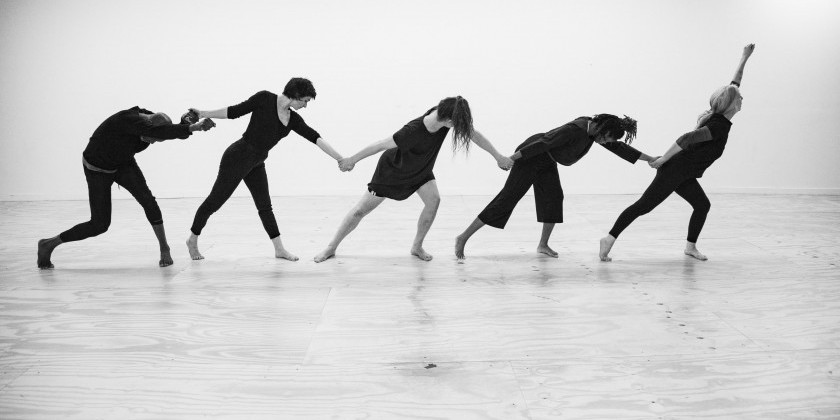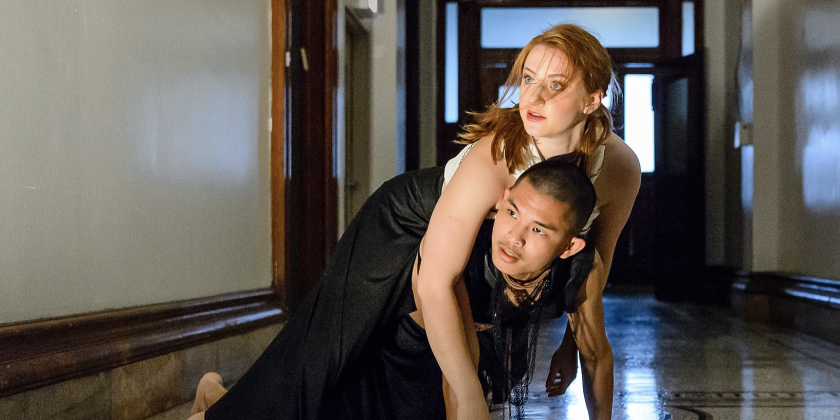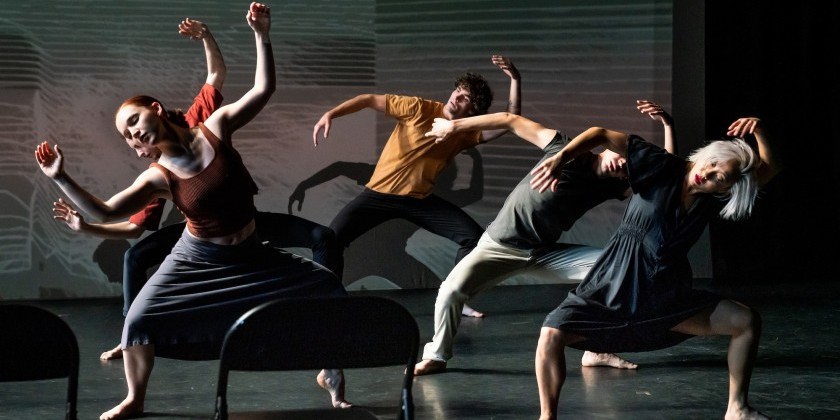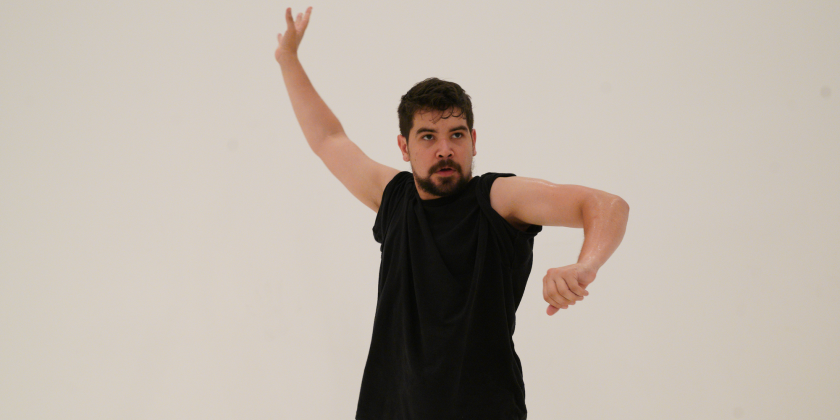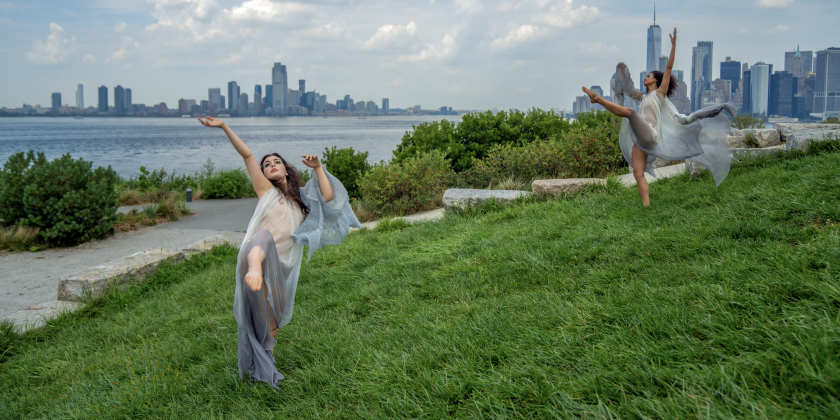EMBODIED LIFE: Carissa Landes on Transitioning from a Dancer to a Moscow-based, Russian-speaking Consular Fellow and the Rigor and Complexity Found in Both
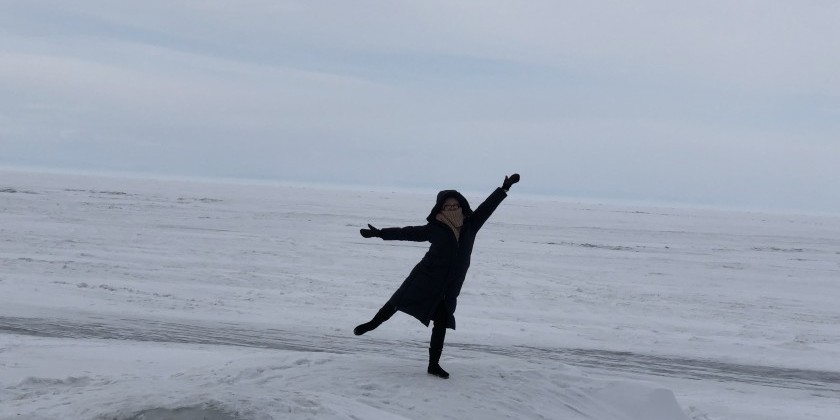
Martha Graham once opined, “A dancer, more than any other human being, dies two deaths: the first, the physical when the powerfully trained body will no longer respond as you would wish.” Yet a vast expanse lies between those two deaths. While some may never leave dance’s thrall, going on to careers in education, administration, academia, or directorship, others chart an entirely new path that, at first glance, may seem far from the studio and stage.
But can one ever stop dancing? Not really. The Dance Enthusiast's EMBODIED LIFE tells the stories of those who've segued to new ventures and how dance continues to inform their lives.
Carissa Landes has a strong command of the future tense. She knows where she is in present space and time but can also visualize where she wants to be later—sometimes, much later. An avid planner, she has charted her path from dancer to consular fellow at the U.S Department of State meticulously, hitting life climaxes when and where they will resonate the most. This may stem from her grounding in languages, both dance and Russian, which has enabled her to understand how a phrase unfolds from beginning to end.
Although she was born amidst the rugged beauty of Alaska, her wanderlust has kept her on the move as she seeks out urban environments. “I kept progressing from bigger city to bigger city,” she says. As a teenager, Landes resided in Seattle with her mother while taking classes at Cornish College of the Arts (where Merce Cunningham studied with Bonnie Bird) and doing summer programs at Interlochen Arts Academy. She later pursued a major in Dance and a second major in Russian and Slavic Studies at New York University. Now, after stints in the Ukraine, Tajikistan, and Kazakhstan, she lives in Moscow. “I've always tried to take as many opportunities to be abroad as I can,” she explains.
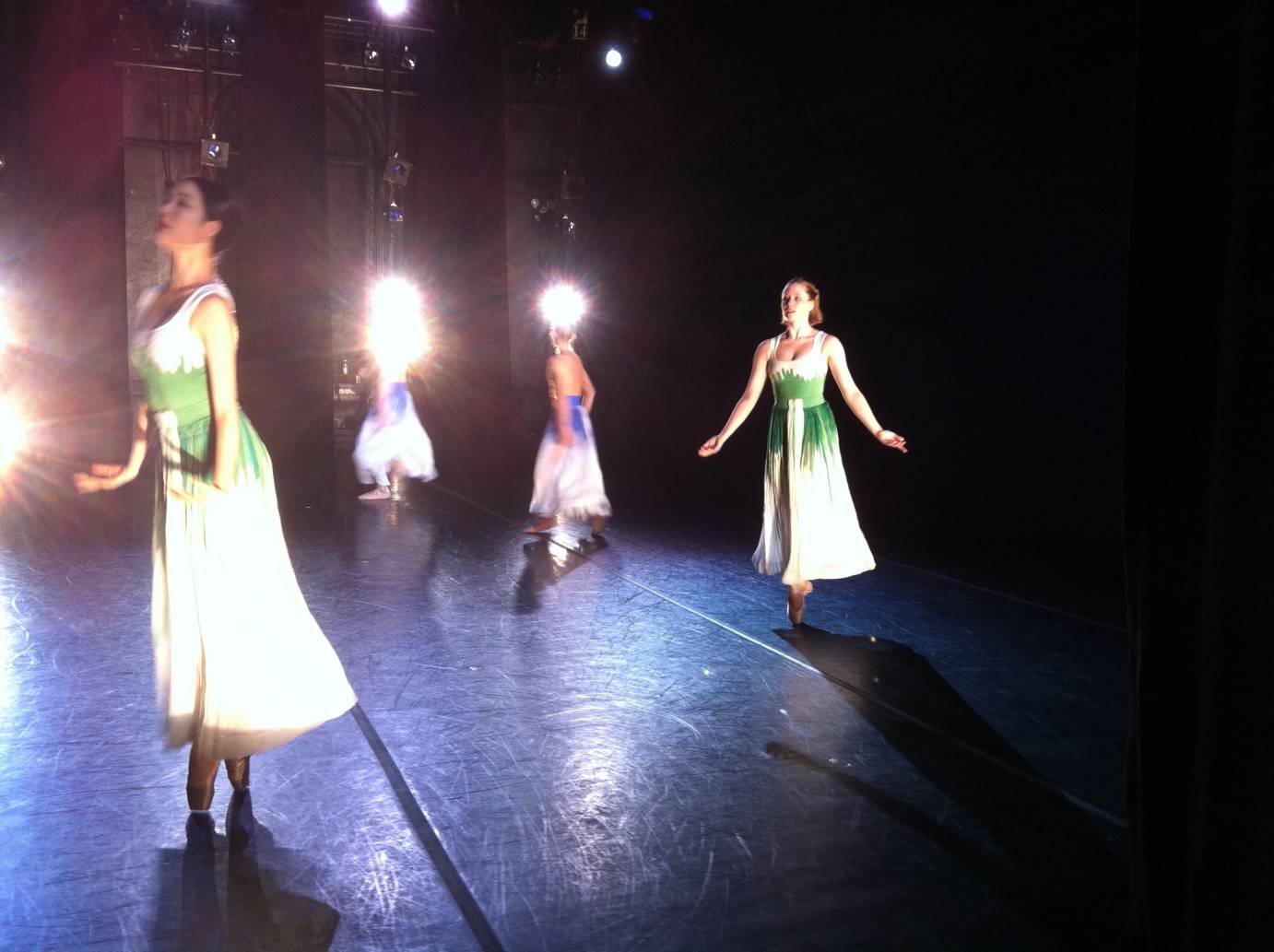
Dancers have a reputation for their single-minded focus, but Landes was different. She loved dance from a young age and hunted opportunities to increase her training. “I was always trying to take more and more classes, and my mom was always trying to stop me,” she says. Yet, alongside this pursuit, she started studying Russian in earnest at age fourteen. “My public high school taught the Russian language, which is incredible.”
Her love of both dance and Russian are unrelated. “I always took umbrage with the fact you can't have two serious, parallel interests that are entirely separate from each other,” she says. Like dance, where perfection can remain tantalizingly out of sight, one can study Russian for a decade-plus, as Landes has, and still have more to learn. “You can never say you've completed learning Russian because it's a lifelong pursuit. It’s harder for native English speakers to learn to speak Russian than Russian native speakers to learn to speak English because the grammar in Russian is very complex,” she clarifies. In particular, modality can prove challenging. “Moderating tone when you're speaking with someone in a professional, diplomatic way versus speaking to someone when you're at the store” is something she continues to hone.
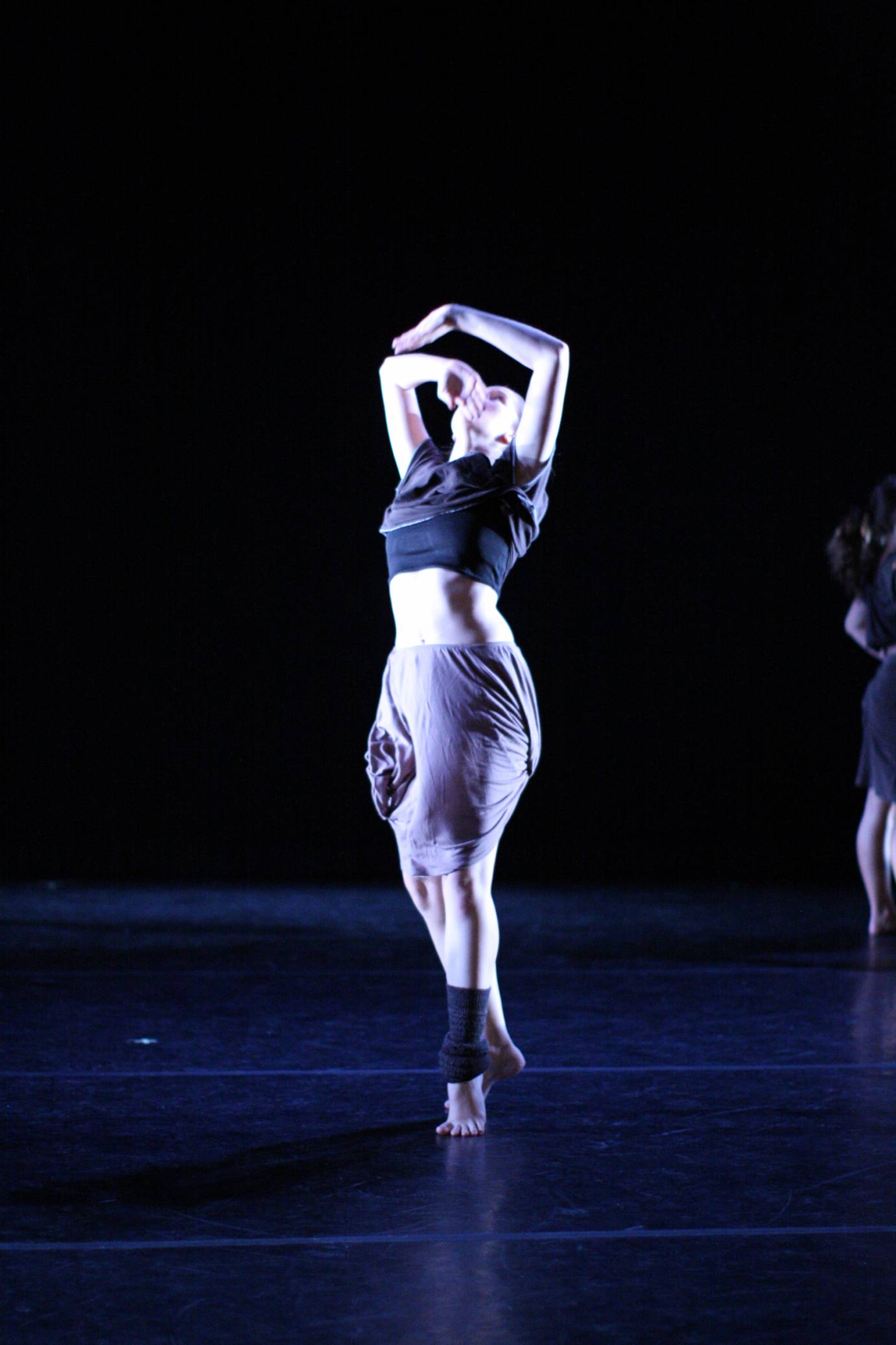
Landes enjoyed her experience as a BFA student at Tisch School of the Arts. She attended because she wanted to be in New York, which, to her, is “the absolute center of everything.” After receiving her degree, she knew that a life spent solely in dance was not for her. “I understood the landscape of modern dance in New York and how truly challenging it is to make a living from it. And I understood that's not something I wanted because I wanted more stability for my life,” she says.
So she did a master’s degree in Russian and East European Studies at the University of North Carolina in Chapel Hill, which she selected because of its financial incentives. “I highly advise anyone seeking a master's degree in the humanities to only go if they're fully funded,” she cautions. While there, she taught modern dance on the side. She didn’t find the switch jarring, going from dancing all day, every day, to only moving her body a few times a week since she’d dedicated so much time to scholastic pursuits. “I was already in that frame of mind from taking serious academic classes. It is a momentum that you keep up.”
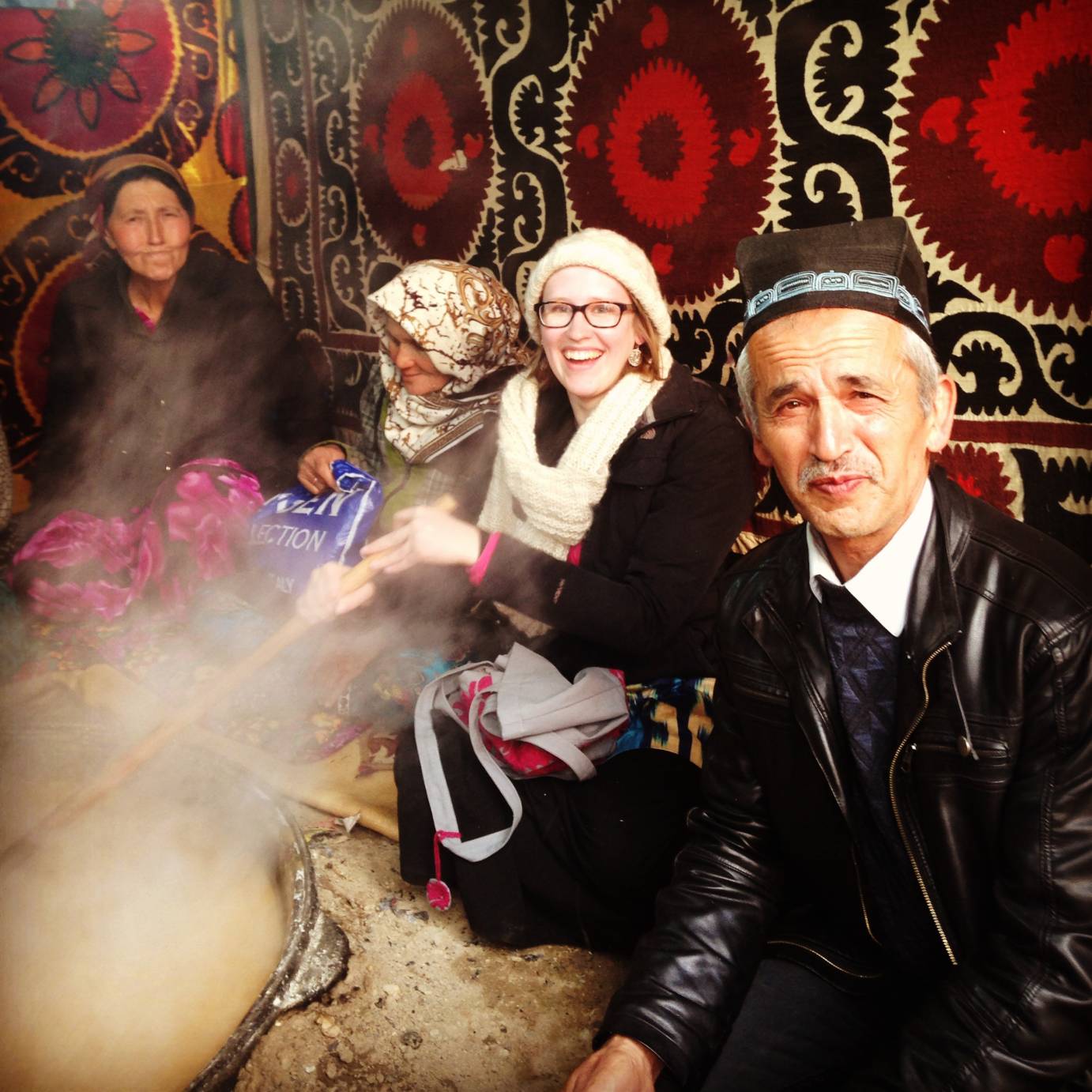
After completing her education, Landes received admittance to the Fulbright Program. She decamped to a small town in Tajikistan, approximately four hours from the capital. She was an English teaching assistant, a job she adored. “I loved teaching, and I loved working with teenagers and kids and giving them this opportunity to talk with a native English speaker,” she says. Living in Tajikistan did come with some discomfort. “I was very cold all the time because they only had space heaters.” Her digestive health also suffered. “I got sick a lot from the food because my stomach was not used to the water.” As a result, she started baking her own bread.
She eventually made her way back to New York, lured by the siren call of a longtime boyfriend (now husband). She sent an application to the State Department and settled in for a long wait. “The recruitment process takes forever. It was years before I finally started my job. You have to play the long game because there's a security clearance process, and then there are so many phases of testing,” she reveals. Her language skills were thoroughly evaluated, which involved an oral assessment in Washington, D.C.
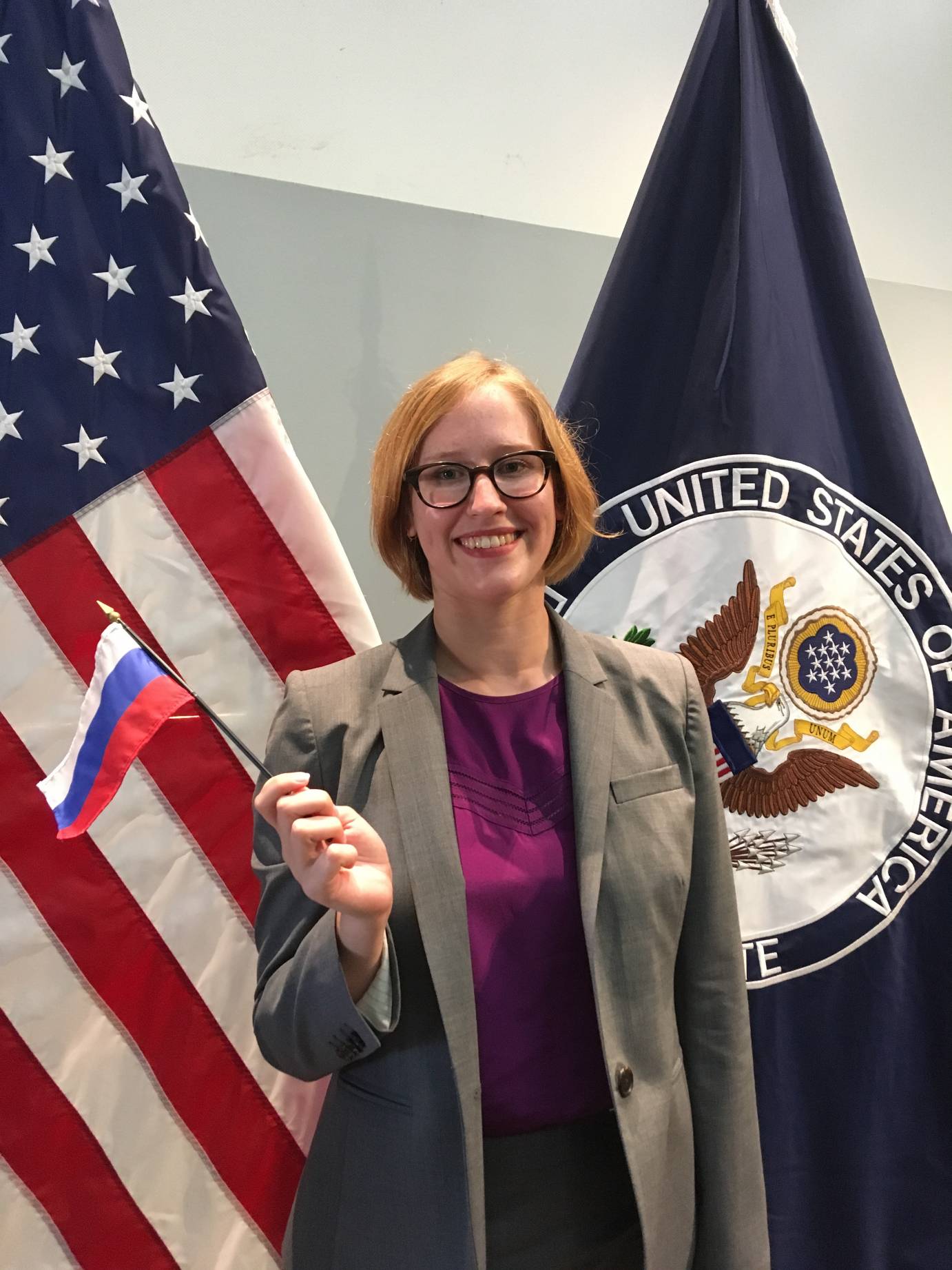
But the job came through, and Landes relocated to Moscow. She describes her current experience as “an incredible opportunity for someone who studied Russian and ended up working at the embassy in Moscow.” Like many of us, her job has evolved due to COVID-19. She says, “Before the pandemic, I worked on a lot of immigrant and non-immigrant visas. Now, during the pandemic, we focus most of our time on American Citizen Services.” Also, just by virtue of being around the embassy, exciting possibilities have come her way. One was coordinating a Fourth of July event that included bringing in a chef from Texas and a taco truck. “It's actually a very high stakes event because it's about maintaining and reinforcing the ties that you have,” she recounts.
Although she’s busy as a consular fellow, she still fits dance into life. She’s gotten into swing dancing and has seen the Bolshoi Ballet several times. Of the latter, she says they did, “a ballet that featured blackface in a way I thought was no longer appropriate to the 21st century. I was honestly quite shocked for a company that tours the world stage. However, the technique and artistry of the Bolshoi are beyond approach.”
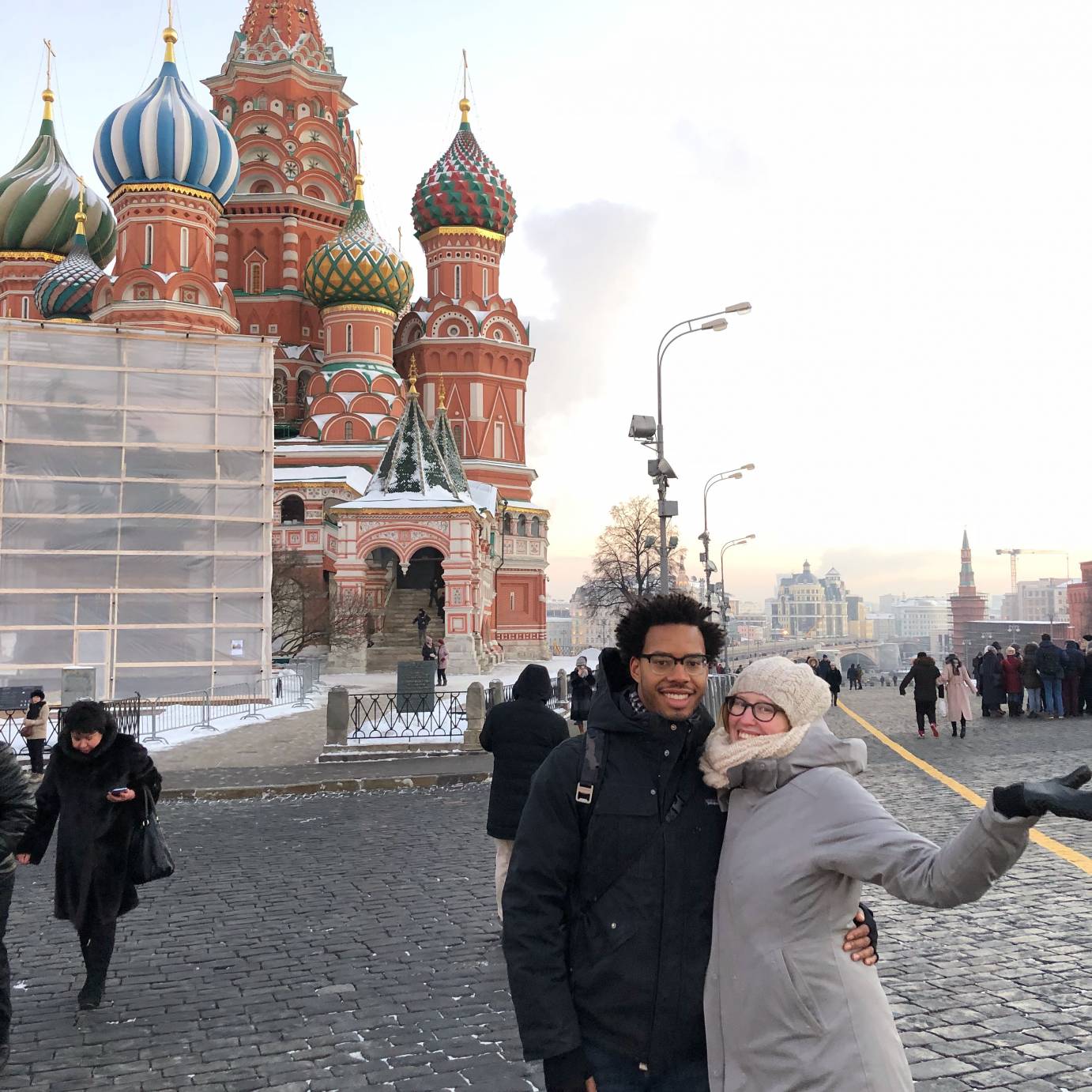
Even with spurts of dancing, she longs for daily ballet class. “I miss taking a class every day, and it's hard to incorporate that into a professional life because the classes are more suited for dancers’ schedules. You're left with the Saturday class, and it's not the same thing.”
Although the physical practice of dance and the intellectual work of Russian may seem far apart, Landes identifies an overlap with “the rigor and the complexity” that both possess. She points out that the idea of dancers being dumb and lacking book smarts is dated and untrue. “People make assumptions, but many, many of the dancers I've known have had really strong academic backgrounds. When that goes side by side, people can be successful in dance or whatever direction they choose.”







